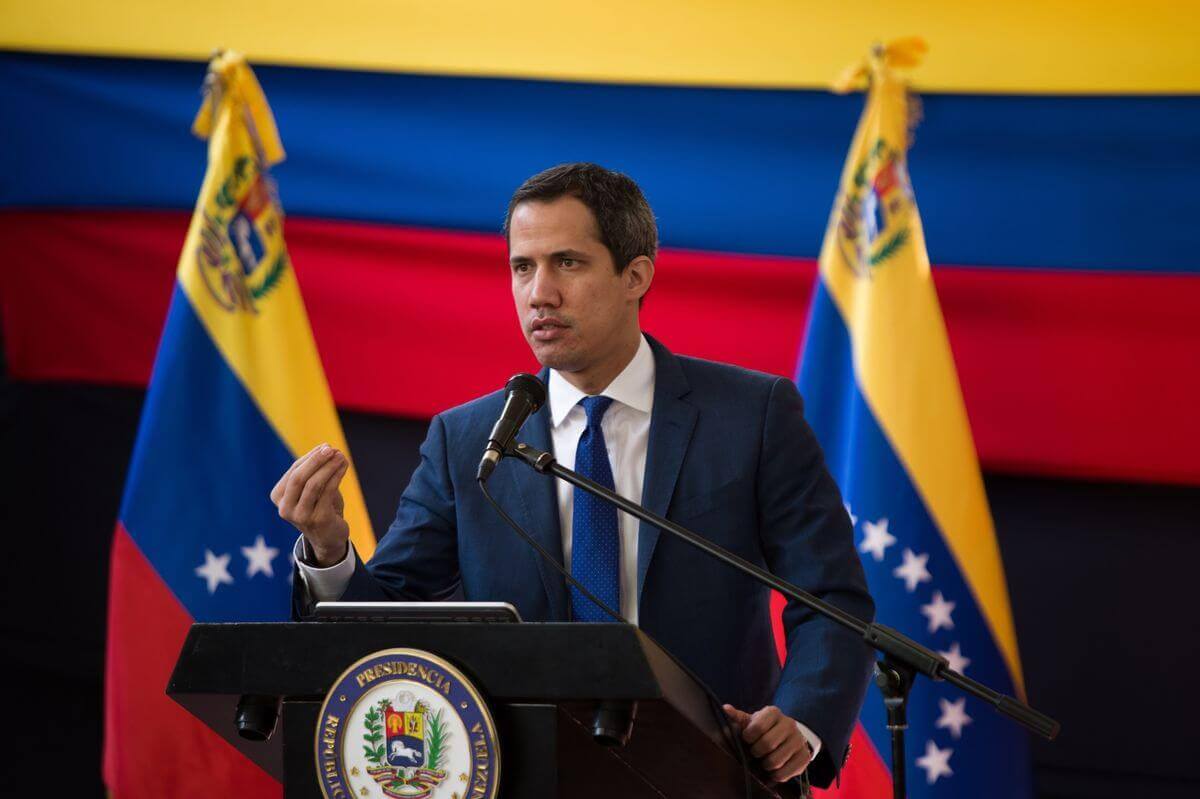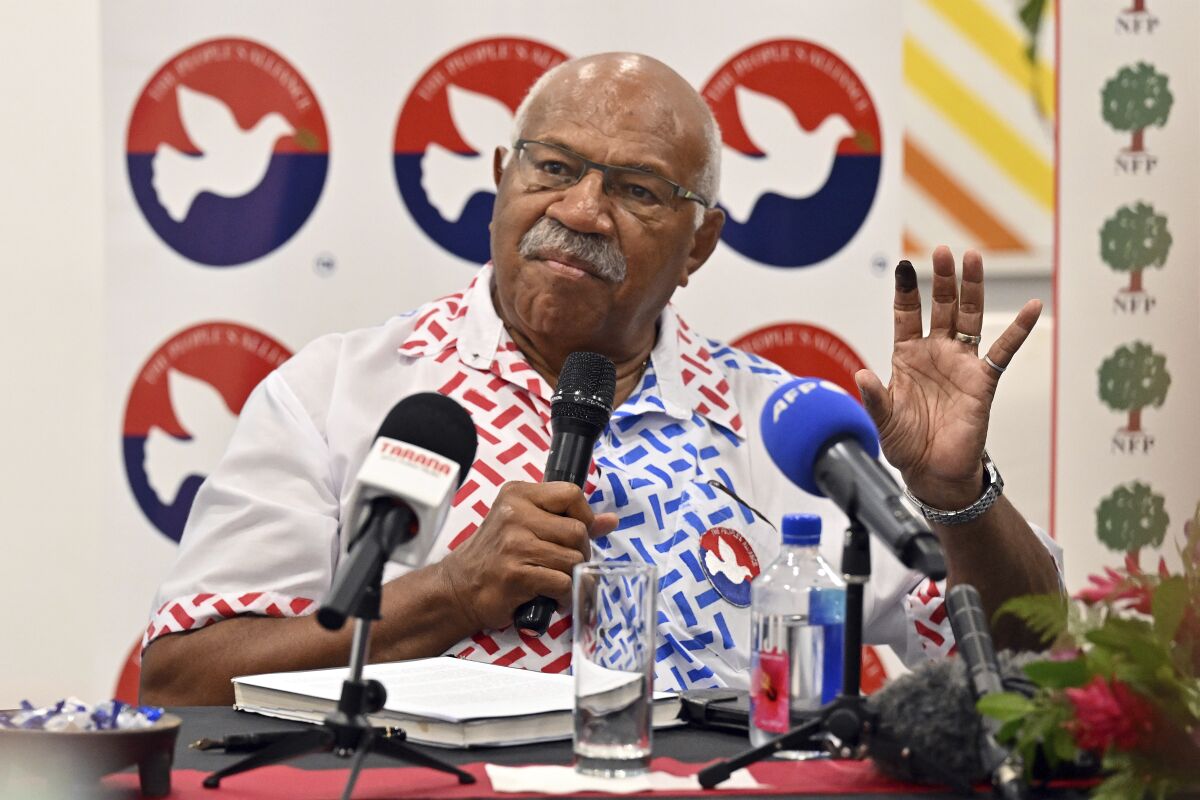South Asia
On Tuesday, Pakistani Foreign Minister Bilawal Bhutto-Zardari expressed ‘disappointment’ at the Taliban’s decision to ban women from universities. He stressed, however, that the best path forward remains engaging with the Taliban rather than ‘stitching together’ an opposition. Similarly, Foreign Office spokesperson Mumtaz Zahra Baloch called on the interim government in Kabul to reconsider the decision. [Dawn]
Over 100 Rohingya Muslims are currently stranded off the shore of India’s Andaman and Nicobar islands, of which 16 to 20 have already died due to dehydration, starvation, or drowning. While rights groups have expressed hope that Indian security forces will soon conduct a rescue operation, the Indian Navy and the Indian Coast Guard have yet to respond to the developments. [NDTV]
Central Asia and the Caucasus
Kazakhstan on Wednesday announced that it reached an agreement with Germany to transport Kazakh oil to a refinery in the German city of Schwedt via Russia’s Druzhba pipeline. [RFE/RL]
According to an investigation by the Belarusian Investigative Center, the Lithuanian publication Siena, and a group of investigative journalists, Russia and Belarus continue to export timber to the European Union by labelling them as Kazakh and Kyrgyz goods. The report notes that while none of the Central Asian countries are major timber exporters, data shows that their timber exports to the EU increased 66.6 times in the last six months. [RFE/RL]
East and Southeast Asia
The United Nations Security Council (UNSC) on Wednesday adopted its first resolution on Myanmar in 74 years, demanding the military government end its violence against protesters and release all political prisoners. While 12 members voted for the resolution, India, China, and Russia abstained. [Al Jazeera]
Taiwan’s Defence Ministry announced Thursday that its air force had scrambled fighter jets to chase away 39 Chinese aircraft that entered its southeastern air defence zone. China sent 21 fighter jets, four strategic bombers, and several early warning, anti-submarine, and refuelling planes over the Strait. [Reuters]
Europe
The Swiss government on Wednesday rejected the parliament’s proposal to add a third gender or no gender option in official records, contending that the “social preconditions” for such a change do not exist. The Federal Council said the “binary gender model” remains “strongly anchored in Swiss society” and any changes would require “numerous” amendments to the constitution. [Euronews]
On Wednesday, the British High Court ruled that the United Kingdom’s (UK) post-Brexit settlement scheme for European Union (EU) nationals is unlawful, as it violates “the right of permanent residence.” The scheme requires EU nationals who were in the country for less than five years before the UK’s exit from the bloc to reapply for “settled status.” Failure to do so results in the abrogation of their right to live, work, rent property, and access healthcare in the UK. [Politico]
During the annual Defence Ministry Board meeting on Tuesday, Russian President Vladimir Putin agreed with Defence Minister Sergei Shoigu’s proposal to increase the size of the Russian military by 30%, raise the age of conscripts from 18-27 to 21-30, and deploy 20 new units. Putin assured that this expansion would be done “calmly, rhythmically, without any haste and persistently” and that Moscow would not repeat mistakes of the past. “We will not engage in militarisation of the country and militarisation of the economy,” he emphasised. [TASS]
Latin America and the Caribbean
A majority of opposition politicians and parties in Venezuela said on Wednesday that they are unwilling to extend the mandate of opposition leader Juan Guaidó’s interim government. Guaido is still recognised by around 60 countries across the globe as the legitimate president of Venezuela, and his interim government appoints the board of Houston-based refiner Citgo Petroleum, a subsidiary of state oil company PDVSA. They say he has been unable to effectively challenge the presidency of Nicolás Maduro, who has led the country since 2013. [MercoPress]
The director of Panama’s National Migration Service (SNM), Samira Gozaine, revealed that by the end of the year, 240,000 migrants will have entered the Central American country. The number of people crossing through the country to reach the United States has increased by 100,000 this year compared to 2021. [teleSUR]
Middle East and North Africa (MENA)
Swedish Foreign Minister Tobias Billström will visit Turkey on Thursday to discuss Stockholm’s bid to join the North Atlantic Treaty Organization, two days after his Turkish counterpart Mevlüt Çavuşoğlu warned Sweden that refusal to extradite dissident journalist Bülent Keneş could hinder Stockholm’s efforts to join the alliance. [Daily Sabah]
Incoming Israeli Prime Minister Benjamin Netanyahu told President Isaac Herzog that he has reached an agreement with coalition partners to form the next government. Netanyahu sealed a deal with far-right and ultra-orthodox to form a 64-seat stable coalition that has been referred to as the most hardline government in Israel’s history. [Times of Israel]
North America
On Tuesday, the United States (US) Department of Commerce introduced new restrictions related to technology exports to Russian paramilitary company Wagner Group, which it accused of “actively committing atrocities and human rights abuses across Ukraine.” “Today, we are sending a clear message to non-state actors seeking to pick up the baton of brutality from [Russian President Vladimir] Putin’s faltering military that the Department of Commerce will not hesitate to act against them,” stated Under Secretary of Commerce for Industry and Security Alan Estevez. [Reuters]
A 2020 Privy Council Office document that was published four months after the 2019 federal elections alleges that China used community leaders and “co-opted” political staffers “under broad guidance” from its Toronto consulate to serve as mediators between Chinese officials and politicians whom Beijing was trying to influence. “Community leaders facilitate the clandestine transfer of funds and recruit potential targets,” the document said, warning that such operations are “likely to be more persistent and pervasive in future elections.” [Global News]
Oceania
Fijian Police Commissioner Brig. Gen. Sitiveni Qiliho announced on Wednesday that the military would assist the police in maintaining security in the wake of threats of violence against minority groups following elections that saw the end of coup leader Frank Bainimarama’s 16-year rule with the formation of a new coalition led by Sitiveni Rabuka. [ABC News Australia]
Australian Foreign Minister Penny Wong met with her Chinese counterpart Wang Yi in Beijing to discuss “strategic” ties. She told Wang that the two countries can grow bilateral relations and uphold national interests by “navigating our differences wisely.” Wong said she discussed Australia’s positions on human rights, trade restrictions, and international security with the Chinese FM and agreed to restart dialogue on several issues, including trade, climate change, and defence. [Foreign Minister Australia]
Sub-Saharan Africa
German pharmaceutical company BioNTech announced on Wednesday that it had finished building its first shippable vaccine factory, called ‘BioNtrainer.’ The factories, made from shipping containers, will be delivered to Kigali early next year and are designed to manufacture mRNA vaccines for COVID-19, malaria, and tuberculosis. It will also ship the BioNTrainers to Senegal and South Africa. [The New Times]
On Wednesday, the International Monetary Fund reached a staff-level agreement with Uganda on a $240 million assistance package. The delivery of the funds is subject to a review by the organisation's executive board over the next few weeks. The IMF has insisted that its preconditions for the package require the government to implement “prudent fiscal and monetary policies, growth- and debt-friendly composition of spending and financing, [...] and anti-corruption measures.” [International Monetary Fund]


